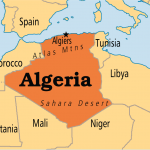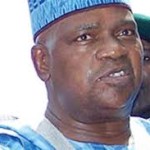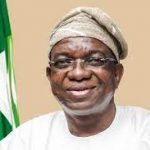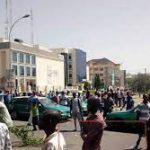INEC Discovers 14,665 Multiple Registrations In FCT
Abuja, Latest Headlines, News Across Nigeria Tuesday, December 21st, 2021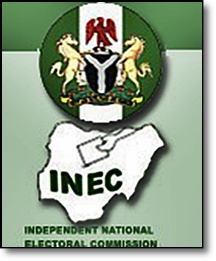
(AFRICAN EXAMINER) – The Independent National Electoral Commission (INEC) on Tuesday, said it discovered 14,665 multiple registrations in the Federal Capital Territory (FCT).
The number, it said, was among 42,986 Nigerians who completed their Continuous Voter Registration (CVR) in the FCT.
INEC Chairman, Prof. Mahmood Yakubu disclosed this at the commission’s meeting with Resident Electoral Commissioner’s (REC) in Abuja.
Yakubu said the multiple registrations were discovered using the new Automatic Biometric Identification System (ABIS) of the commission.
“In view of the forthcoming area council election in the FCT scheduled for Feb. 12, 2022, involving 68 constituencies to elect 6 area council chairmen and 62 councillors, the CVR exercise was suspended nine days ago, that is, 60 days to the election as required by law.
“A total of 42,986 Nigerians completed their registration in the FCT. The Commission has diligently cleaned up the data using our new ABIS to weed out multiple registrations.
“As a testimony to the efficacy of our ABIS process, 14,665 (34.1 per cent) multiple registrations were detected and rejected. Consequently, the number of new valid registrants in the FCT is 28,321.
“Added to this figure are requests for transfer of registrations to FCT, replacement of lost or damaged PVC’s, and update of voter records, making an overall of 39,208 new PVC’s to be printed.
“I am glad to report that all the PVC’s will be available for collection from Jan. 6 till Feb. 4, 2022. The FCT office of the commission will provide full details of the locations and procedure for the collection of the PVC’s in earnest,” Yakubu said.
He urged all new voters to use the opportunity to collect their PVC’s ahead of the deadline to avoid a rush at the last minute, which characterised such exercise in the past.
The chairman also disclosed that INEC had now completed the second quarter of the exercise, which commenced online in June, and physically at designated centres in July, with the commission releasing weekly updates for the last six months.
Yakubu, who said that the third quarter of the CVR would commence in January 2022, added that the commission was aware that Nigerians would like to know when the exercise would be devolved beyond INEC state and local government offices, to enable more citizens to register.
“Secondly, for those already registered, they will like to know when their PVC’s will be available for collection.
“The commission is working on these concerns and issues, and will issue a comprehensive schedule for both activities early in the new year,” he said.
Yakubu said the commission at the meeting, would review the ongoing CVR, review the recently concluded Anambra governorship election, and its preparations for forthcoming elections and other related matters.
Yakubu said that the BVAS deployed for the Nov. 6 Anambra governorship election, INEC had reviewed its performance, and pledged there would be greater improvement leading to future elections.
He recalled that the commission piloted two important technological innovations in the state governorship election, BVAS and dedicated portals.
“The BVAS was deployed for the first time in a major election after the successful pilot in the Isoko South I state constituency in Delta, in September.
“It has replaced the Smart Card Reader for verification and authentication as part of our improved voter accreditation process.
“The new technology was designed in-house by INEC engineers. Like every new technology, glitches were observed and important lessons learnt.
“We wish to assure Nigerians that the commission has reviewed the performance of the BVAS in Anambra, and there will be a tremendous improvement leading to optimal performance in future elections.
“The BVAS has come to stay. So, too, is the uploading of polling unit results on the INEC Result Viewing (IReV) portal in real-time on election day.
“We are convinced that the introduction of technology in voter accreditation and result management is better than the best entirely manual process.
“It also increases public confidence in the process. We will continue to deepen the use of technology in our elections,” he said.
Yakubu added that the second technological innovation introduced in the state election, which was dedicated portals, went virtually unnoticed by many Nigerians.
“For some time now, dedicated portals were created by the commission to handle different aspects of the electoral process.
“For instance, the nomination of candidates by political parties, including the uploading of nomination forms, is now done online.
“So too, is the accreditation of election observers and the media. In addition, and for the first time in the history of the commission, the accreditation of polling and collation agents nominated by political parties were done online.
“This has ensured that all such agents were provided with identification tags bearing not only their party logos, names, and other personal details, but personal photographs as well.
“In all, the commission issued 63,745 identification tags to agents of the 18 political parties that sponsored candidates for the election.
“This has sanitised the process and made the identification of ghost party agents easier. We will maintain the same arrangement for all forthcoming elections, including the 2023 general election,” he said.
NAN
Related Posts
Short URL: https://www.africanexaminer.com/?p=72078


